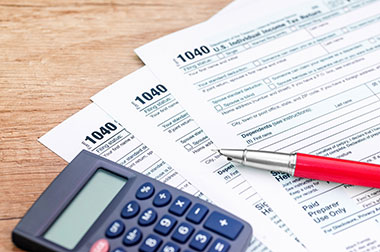Finance > Tax Planning StrategiesRetirement Tax Planning StrategiesTax-Efficient Retirement Income StrategiesRetirement is a time to relax and enjoy the fruits of your labor, but it's also a time to be mindful of taxes. Those hard-earned savings can quickly dwindle if you don't have a plan for minimizing your tax burden. Fear not! This guide will equip you with tax-efficient strategies to maximize your retirement income and keep more of your money in your pocket. Taxable vs. Tax-Advantaged AccountsTaxable accounts: Investments like individual brokerage accounts are taxed on dividends, interest, and capital gains when realized. Tax-advantaged accounts: Traditional IRAs and 401(k)s offer tax-deferred growth, meaning you pay taxes only when you withdraw the money in retirement. Roth IRAs and Roth 401(k)s allow tax-free withdrawals in retirement, but contributions are made with after-tax dollars. Strategies for Minimizing Taxes:Roth Conversions: Convert traditional IRA funds to a Roth IRA in a low-income year. You'll pay taxes upfront, but future withdrawals will be tax-free. Tax-Efficient Withdrawals: Sequence your withdrawals to utilize tax-free Roth accounts first, followed by tax-deferred accounts, and lastly taxable accounts. Tax-Loss Harvesting: Sell investments at a loss to offset capital gains and reduce your taxable income. Charitable Giving: Donate appreciated assets directly from your IRA to qualified charities, avoiding capital gains taxes and satisfying required minimum distributions (RMDs). Planning for Long-Term Tax EfficiencyAsset Allocation: Diversify your portfolio across different asset classes like stocks, bonds, and real estate for optimal tax treatment. Retirement Portfolio Management: Rebalance your portfolio regularly to maintain your desired asset allocation and optimize tax efficiency. Tax-Planning Software: Utilize online tools and software to calculate your potential tax liability and identify tax-saving opportunities. By exploring and implementing tax-efficient strategies, you can significantly reduce your tax burden and ensure your retirement nest egg stretches further. Retire rich, not broke, and enjoy your golden years to the fullest! Remember, tax laws are complex and can change, so consulting a financial advisor or tax professional is always recommended. They can personalize your strategy based on your individual circumstances and goals. |
 Photo by Volodymyrv / Adobe Stock Photo by Volodymyrv / Adobe Stock |